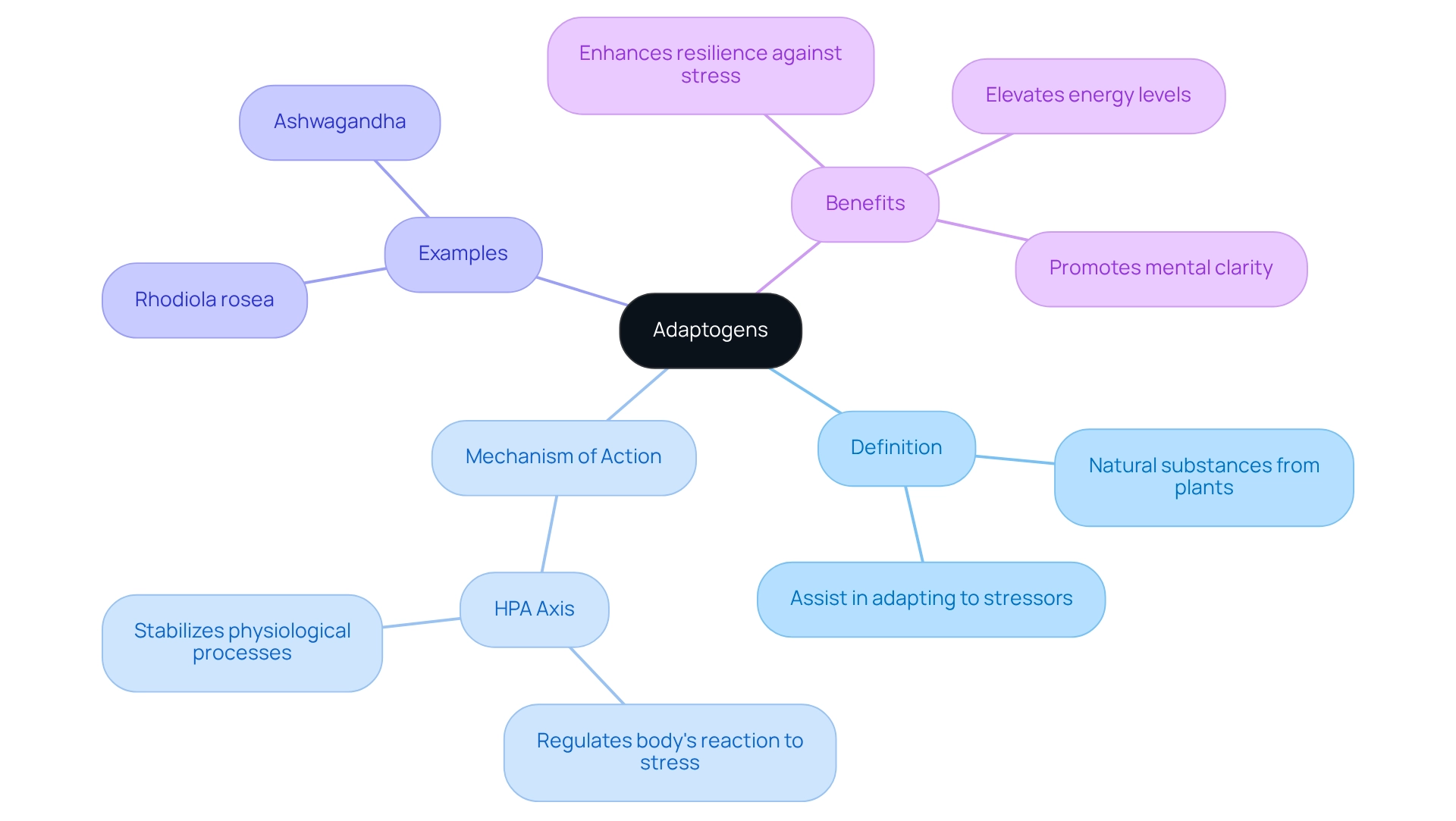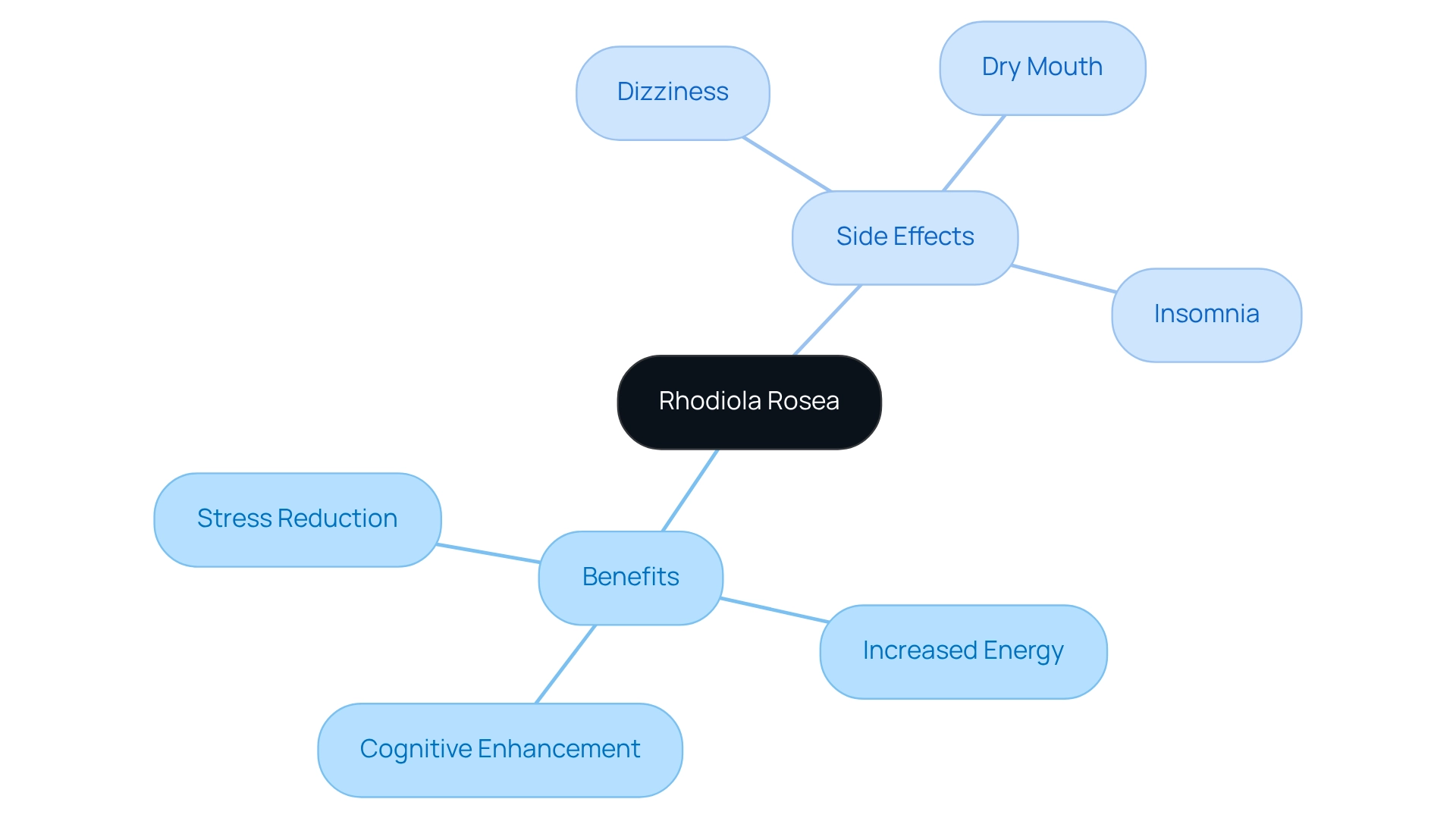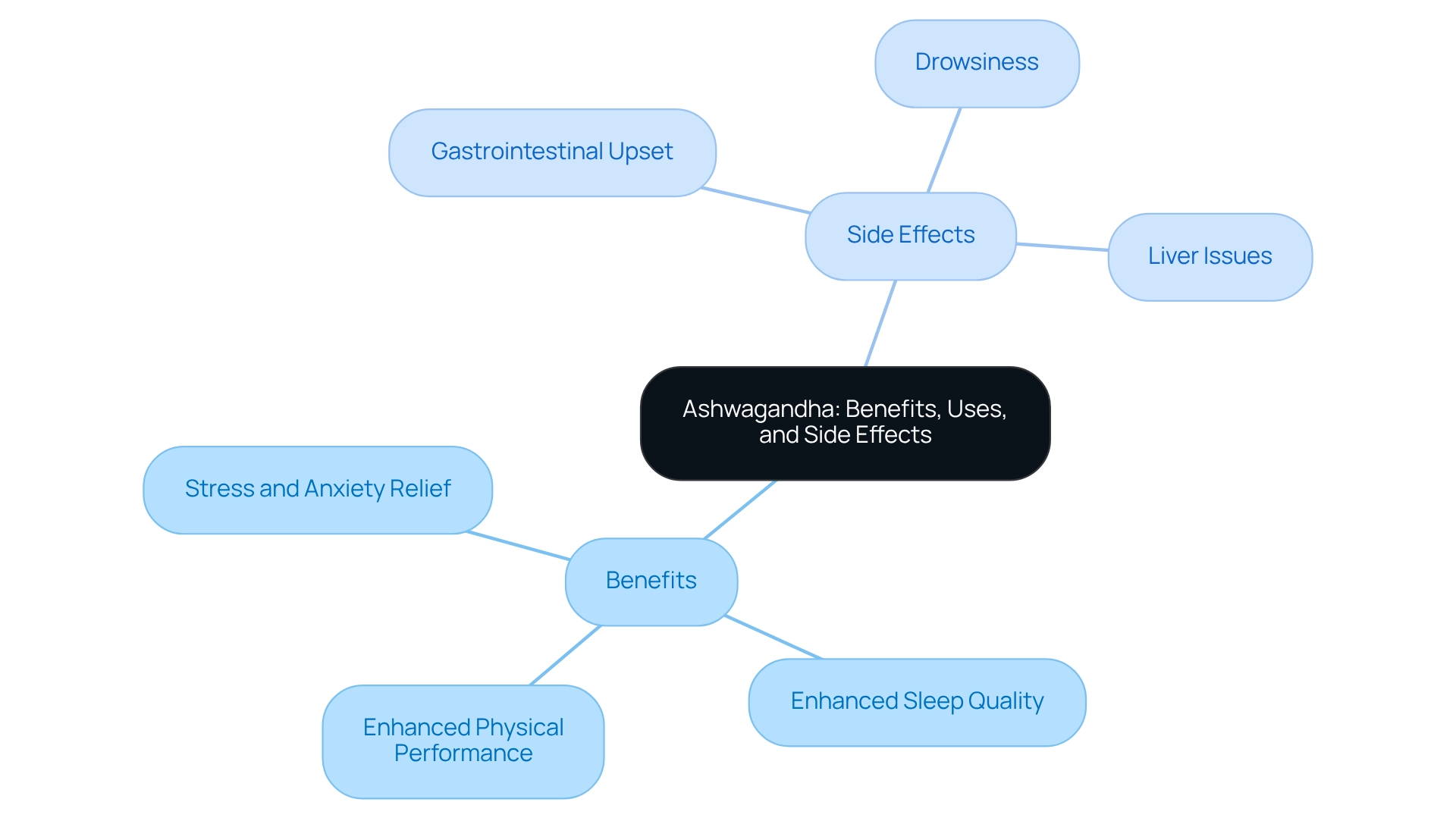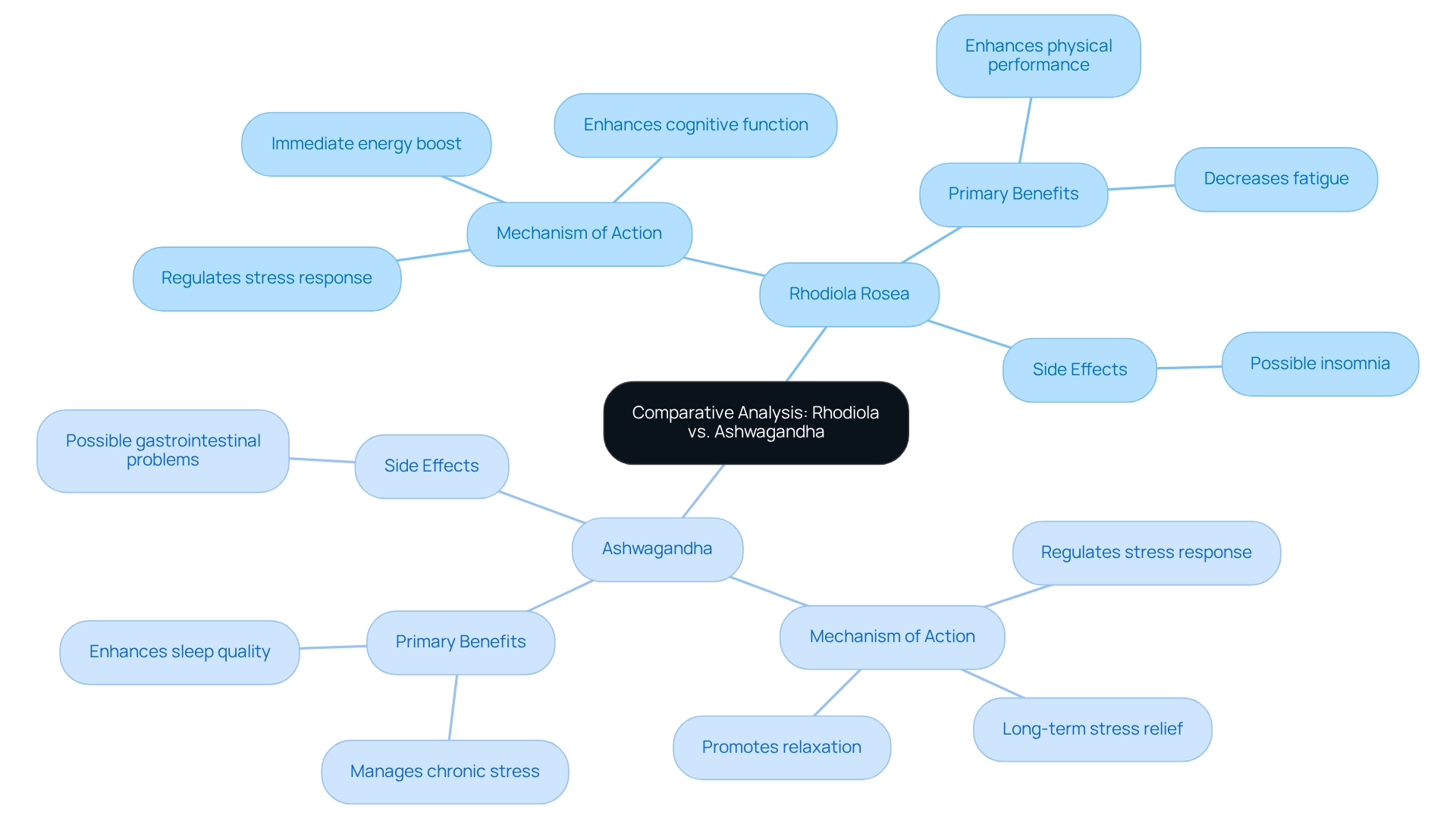Rhodiola Rosea Ashwagandha: Comparing Benefits and Effects
Overview
This article provides a comprehensive comparison of the benefits and effects of Rhodiola Rosea and Ashwagandha, emphasizing their roles as adaptogens in stress management and overall wellness. It highlights that:
- Rhodiola is often preferred for immediate energy boosts and cognitive enhancement.
- Ashwagandha is recognized for its effectiveness in long-term stress relief and improved sleep quality.
Therefore, the choice between these two adaptogens ultimately depends on individual health goals.
Introduction
In a world where stress appears to be an unavoidable aspect of life, the quest for natural solutions to improve well-being has gained substantial attention. Enter adaptogens—remarkable plant-derived substances that enable the body to manage stressors and sustain balance. Notable examples include:
- Rhodiola Rosea
- Ashwagandha
These are celebrated not only for their capacity to relieve stress and enhance energy but also for their potential to improve cognitive function. As the interest in these adaptogens continues to grow, understanding their unique benefits, mechanisms of action, and possible side effects becomes crucial for anyone eager to unlock their full potential.
Understanding Adaptogens: Definition and Mechanism of Action
Adaptogens are natural substances, primarily derived from plants, that assist the body in adapting to stressors and promoting homeostasis. But how do they work? They adjust the body’s reaction to pressure, particularly through the hypothalamic-pituitary-adrenal (HPA) axis. This regulation stabilizes physiological processes, enabling individuals to maintain balance during stressful situations.
Consider adaptogens such as:
- Rhodiola rosea
- Ashwagandha
These substances are recognized for their ability to enhance resilience against stress, elevate energy levels, and promote mental clarity. This makes them favored options for those looking to improve their overall wellness. If you’re seeking a natural way to bolster your well-being, exploring adaptogens could be a beneficial step.

Rhodiola Rosea: Benefits, Uses, and Side Effects
This plant, rhodiola rosea ashwagandha, is renowned for its adaptogenic qualities, particularly in enhancing both physical and mental performance. Let’s explore some key benefits:
- Stress Reduction: Rhodiola has been shown to lower cortisol levels, effectively alleviating stress and anxiety.
- Increased Energy: It is frequently used to combat fatigue and boost endurance, making it a favorite among athletes.
- Cognitive Enhancement: Research indicates that Rhodiola can enhance focus, memory, and overall cognitive function.
However, it is important to be aware of potential side effects, which may include dizziness, dry mouth, and insomnia, especially when taken in high doses. Therefore, it is essential for users to monitor their reactions and consult healthcare professionals if necessary.

Ashwagandha: Benefits, Uses, and Side Effects
Withania somnifera, commonly known as Ashwagandha, is recognized as a potent adaptogen that offers a variety of health advantages, similar to those provided by rhodiola rosea ashwagandha. This herb is primarily used for several key benefits:
- Stress and Anxiety Relief: Ashwagandha is well-documented for its ability to reduce cortisol levels and alleviate symptoms of stress and anxiety.
- Enhanced Sleep Quality: Many individuals report improved sleep patterns and decreased insomnia when utilizing rhodiola rosea ashwagandha.
- Enhanced Physical Performance: Rhodiola rosea ashwagandha may support muscle strength and recovery, making it beneficial for athletes.
However, it is important to be aware of potential side effects, which can include gastrointestinal upset, drowsiness, and, in rare cases, liver issues. As with any supplement, it is wise to consult a healthcare provider before beginning this herbal remedy to ensure it aligns with your health needs.

Comparative Analysis: Rhodiola vs. Ashwagandha
When comparing rhodiola rosea and ashwagandha, several key differences and similarities emerge.
Mechanism of Action: The herbs rhodiola rosea and ashwagandha help regulate the body’s stress response. However, rhodiola rosea is often favored for providing immediate energy boosts and enhancing cognitive function. In contrast, ashwagandha is considered more effective for long-term stress relief and relaxation.
Primary Benefits: The combination of rhodiola rosea and ashwagandha excels in enhancing physical performance and decreasing fatigue, making it an excellent choice for athletes. On the other hand, individuals aiming to manage chronic stress and enhance sleep quality may find ashwagandha to be better suited for their needs.
Side Effects: Both herbs are typically well-accepted. However, rhodiola may induce more prompt side effects such as insomnia, whereas ashwagandha might result in gastrointestinal problems.
Ultimately, the choice between rhodiola rosea and ashwagandha depends on individual health goals and responses to these adaptogens. Consider your needs carefully to make an informed decision.

Conclusion
The exploration of adaptogens highlights their significant role in assisting individuals to navigate the challenges of stress and enhance overall well-being. Rhodiola Rosea and Ashwagandha are particularly noteworthy for their unique benefits and mechanisms of action. Rhodiola is especially effective for immediate energy boosts and cognitive enhancement, making it a preferred choice among athletes and those seeking quick relief from fatigue. In contrast, Ashwagandha excels in providing long-term stress relief and improving sleep quality, appealing to those who desire a more holistic approach to stress management.
While these adaptogens offer remarkable advantages, it is essential to remain mindful of their potential side effects. Users should consider their individual health needs and consult healthcare professionals before incorporating these supplements into their routines. Understanding the differences between Rhodiola and Ashwagandha enables informed choices tailored to personal health goals.
As interest in natural solutions for stress management continues to rise, embracing the benefits of adaptogens like Rhodiola and Ashwagandha may empower individuals to achieve greater balance and resilience in their lives. By harnessing the power of these plant-derived substances, one can unlock their full potential and foster a healthier, more vibrant existence.
Frequently Asked Questions
What are adaptogens?
Adaptogens are natural substances, primarily derived from plants, that help the body adapt to stressors and promote homeostasis.
How do adaptogens work in the body?
Adaptogens work by adjusting the body’s reaction to stress, particularly through the hypothalamic-pituitary-adrenal (HPA) axis, which stabilizes physiological processes and helps maintain balance during stressful situations.
Can you provide examples of adaptogens?
Examples of adaptogens include Rhodiola rosea and Ashwagandha.
What benefits do adaptogens offer?
Adaptogens are recognized for their ability to enhance resilience against stress, elevate energy levels, and promote mental clarity, making them popular for improving overall wellness.
Are adaptogens a natural option for wellness?
Yes, exploring adaptogens can be a beneficial step for those seeking a natural way to bolster their well-being.






